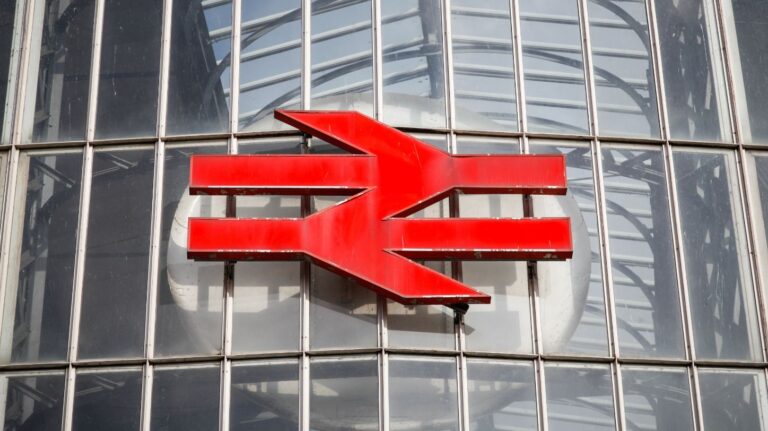Labour has announced the publication of ‘Getting Britain Moving: Labour’s Plan to Fix Britain’s Railways‘, a plan to establish Great British Railways (GBR) should the party win the next general election.
GBR was first proposed by the Conservatives in 2021 following a review of the railways, with the aim of simplifying the franchise system and rebuilding passenger numbers after they fell dramatically during the pandemic.
The Tories’ proposed public body promises to subsume Network Rail’s responsibility for track and stations, as well as taking charge of ticketing, timetables and network planning.
Labour’s GBR would operate similarly, taking over railway contracts after they expire – the majority of which will do so in the next government’s first term.
The opposition party also pledged to create a new independent watchdog, the Passenger Standards Authority, to ensure GBR maintains standards.
Furthermore, Labour has committed to introducing a statutory duty on GBR to promote the use of rail freight, which is currently owned by private firms, to cut carbon emissions and reduce lorry traffic.
READ MORE: TfW announces rail reorganisation plans
UK shadow transport secretary Louise Haigh said: “With Labour’s bold reforms, a publicly owned railway will be single-mindedly focused on delivering for passengers and will be held to account on delivering reliable, safe, efficient, accessible, affordable and quality services.
“Labour’s detailed plans will get our railways back on track; driving up standards for passengers, bringing down costs for taxpayers, driving growth and getting Britain moving.”
According to Labour, GBR, like private companies now, would continue to lease rolling stock because it would not be responsible to take on the cost of buying it.
Labour also claimed it is not planning to nationalise rail freight companies, and would still allow privately financed open access operators, such as Hull Trains and Lumo, to continue.
READ MORE: Lord McLoughlin outlines TfN’s transport infrastructure plan
Many transport charities and organisations have largely welcomed the announcement, stressing the importance of rail reform in the UK.
Responding to the publication of the plan, Paul Tuohy, from transport charity Campaign for Better Transport, said: “We’re pleased to see that Labour’s plans for the railways aim to deliver much-needed reforms and promise to put passengers and freight first.
“Rail reform is long overdue, and passengers have waited long enough, so we particularly welcome the commitment to fares and ticketing reforms and to establishing Great British Railways.
“We are also pleased that many of our own recommendations for improving the rail network – including a best price ticket guarantee, a commitment to move more freight by rail and nationwide digital season tickets – have been taken on board.
“However, we are concerned that these plans may not strike the right balance between the government’s strategic direction for the railways and the benefits of private sector delivery.
“Our preferred model for the railways would be a franchising model, similar to Labour’s plan for buses, with a role for open access operators.”
The UK’s current rail minister Huw Merriman derided Labour’s pledge, assessing the promise to renationalise as an overambitious and underfunded scheme to win votes.
“Labour have confirmed they would push forward with their pointless, unfunded rail nationalisation that will do nothing to improve train reliability or affordability for passengers,” said Merriman.
“Just like their unfunded £28bn-a-year decarbonisation promise, they don’t have a plan to pay for the bill attached to their rail nationalisation. Without a plan to pay for this, it means one thing: taxes will rise on hard working people.”
Achievements and innovations in transport planning will be celebrated at the third annual CiTTi Awards, which will be held on 26 November 2024 at De Vere Grand Connaught Rooms in London. Nominations are open now! Please visit www.cittiawards.co.uk to learn more about this unmissable event for the UK’s transportation sector.





